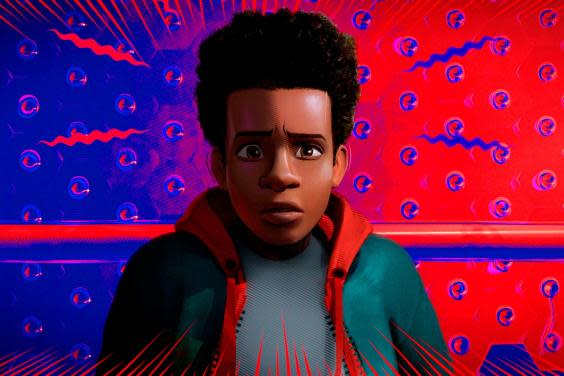Spider-Man: By going their separate ways, Disney and Sony may have just killed the Marvel Cinematic Universe

Disney hasn’t killed Spider-Man, but they’ve at least left him mortally wounded. It was announced last night, to cries of horror and threats of boycott from Marvel Universe fans, that the pre-existing deal between Spider-Man rights holders Sony and Disney, the home of the Marvel Universe, was to be scrapped, meaning no more Spider-Man/Marvel Universe crossovers, the abandonment of Avengers-adjacent stories set up in this summer’s Spider-Man: Far from Home, and an uncertain future for Tom Holland’s superhero.
According to Deadline, Disney wanted to change the financial particulars of the deal, suggesting they and Sony implement a 50/50 co-financing agreement moving forward, which Sony baulked at, as it would reportedly cut into their profits.
From a business perspective, Sony’s stance isn’t unreasonable. Last month, Far from Home became the only non-Disney 2019 film to gross a billion dollars worldwide, further cementing the franchise as Sony’s healthiest cash cow, and a franchise they would be foolish to no longer make top-dollar from. Likewise, Disney already solely owns the rights to all Spider-Man merchandising, along with much of the box office all-together – they’ve had five billion-dollar grossers this year alone, making their thirst for even more money morally questionable at best.
But the biggest question mark surrounding the scrapped deal is how badly it could damage both Spider-Man and the Marvel Universe in the future, and whether corporate feuding is really worth jeopardising creativity.
Spider-Man, after all, has always been the best superhero because of his everyday humanity, reflected in his gawky nervousness, underdog quality and relatable lack of cool. He has long been the perfect audience surrogate, in a way that even Robert Downey Jr’s moneyed, uber-confident Tony Stark never was. And it’s been something particularly pronounced in the Tom Holland era, his plucky, over-awed energy rooting Peter Parker in a lovely normality that not only makes his anxiety especially heartwarming, but his victories all that more powerful. His two solo Spider-Man movies have additionally worked so well because they’re essentially teen movies, as interested in burgeoning adolescent hormones, school dances and class trips as they are super-villains.
Take away Spider-Man and the Marvel Universe suddenly becomes chillier, more invested in cosmic spectacle than heart. And considering the future of the Universe as it has been teased so far, Phase Four officially moving further and further into space and transitioning away from the earthbound heroics of the late Iron Man and Captain America, it reads as creatively baffling to lift him out of it.

Of the five Marvel movies announced for 2020 and 2021, only the forthcoming Shang-Chi and the Legend of the Ten Rings is speculated to be set on present-day earth – Scarlett Johansson’s Black Widow movie believed to be set in the past, for… obvious reasons. Otherwise they are films dominated by characters birthed in or adopted by other planets, as in Thor, The Eternals, the Guardians of the Galaxy, Captain Marvel and Black Panther, or magical oddballs like Doctor Strange – who barely sustained his own movie let alone an entire series of them. So excising Spider-Man feels like an odd move for Disney, one that could be read as a corporation sacrificing much-needed humanity in exchange for a cosmic space opera that will undoubtedly be very good, but potentially lacking in earthy warmth.
Even more worrying is what Sony may have in store for Spider-Man. Despite the internet’s collective head-shaking over the last 12 hours, Sony isn’t incapable of making a great superhero movie. Spider-Man: Into the Spider-Verse, their glorious animated film that scored a Best Animated Picture Oscar at this year’s Academy Awards, was a kinetic, progressive masterpiece, and one that took the hero into thrilling new corners. At least two of Sam Raimi’s Spider-Man movies are equally wonderful, the second often regarded as one of the best in the entire genre, while even last year’s Venom was inexplicably entertaining (despite Tom Hardy’s best efforts to ruin it).
But Sony’s decision-making in the last 24 hours could also be read as potentially misguided confidence in their own properties, driven by the fact that Venom survived months of bad buzz to gross $856 million worldwide, and Holland and his co-star Zendaya have become beloved Twitter pin-ups in the wake of Far from Home. Currently in development are an array of Sony movies anchored by B-list Spider-Man side-characters like Kraven: The Hunter, Black Cat and Jared Leto’s vampire superhero Morbius, who will debuting in his own movie next summer. But riding on the assumption that bringing them together will create a compelling Avengers-like supergroup feels like a disaster waiting to happen.
Spider-Man may be able to survive without Disney, but even the world’s greatest superhero may not be able to survive Jared Leto.
Read more
Sony suggests Disney to blame for Spider-Man’s uncertain Marvel future

 Yahoo Movies
Yahoo Movies 
